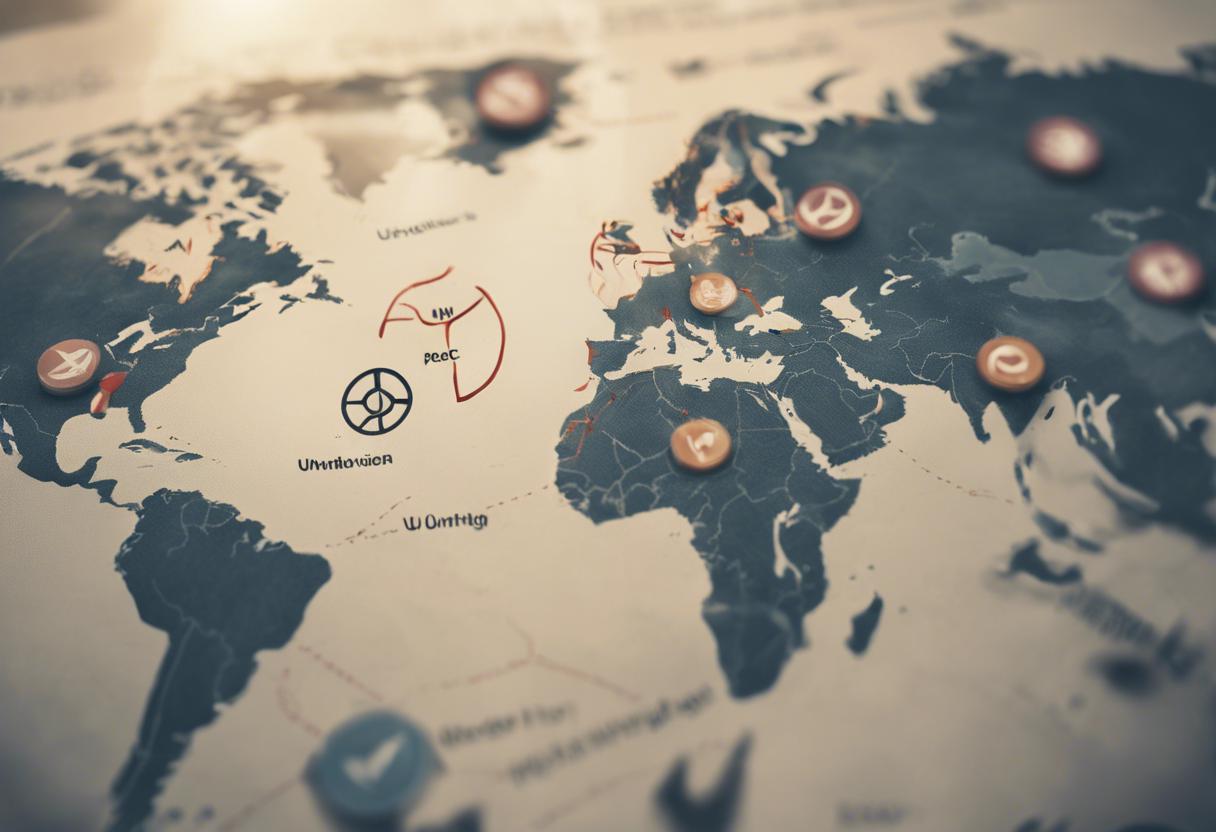Many western nations’ chosen model of global multilateral order for the past decade and a half is often described as the “rules-based international order”. Although this political concept doesn’t serve as an analytical formula, it has the potential to garner support. However, it may be criticised for inconsistency, insincerity, and duplicity in promoting its principles, particularly with regards to occurrences in Ukraine and Gaza.
This discrepancy becomes increasingly significant in the context of the liberal international order, under the United States’s authority, introduced in the 1990s. As we step into a more competitive and now disputed multipolar world, powerful nations from the Global South are advocating for increased representation in centres of authority and decision-making to ensure more equality. With alternative narratives of a more encompassing multilateralism, China and Russia, who are against this rules-based model, are competing for their endorsement.
The “rules-based order”, which is designed to convey the principles of law, human rights, democracy, and market economics, is vague, according to legal experts, regarding its acknowledgement of public international law and agreements. Research in international relations reveals that its state supporters have differing levels of dedication to the United Nations Charter and related institutions – the confirmed structure of multilateralism. European researchers are sceptical about whether it could provide a convincingly consistent political and ethical groundwork for a persuasive foreign policy in the European Union.
Such issues originate from the political beginnings of the order under the leadership of Barack Obama during his presidency from 2008 to 2016. As China became a leading focus of US foreign policy, Obama initiated a “pivot to Asia”. His Secretary of State, Hillary Clinton, refined notions about a rules-based system from seemingly unbiased trade talks along with developing an Indo-Pacific security policy. Subsequently, the model was embraced by allied nations and institutions in this novel geopolitical context, implemented as a putatively technocratic instrument devoid of overt ideological affiliation.
Obama staunchly advocated for the US being at the helm of the emerging world order. He asserted that it should be America writing the rules and making the key decisions, as part of his vision for a 21st-century American renaissance. However, his successor, Donald Trump, had a differing opinion; he viewed the need not for a new multilateralism, but rather for a revival of US unilateral power and transactional might as a way to restore its greatness.
During Trump’s tenure, the concept of a rules-based system encountered favourable reception among EU nations, NATO, and Asian countries like Japan, South Korea, and India. All these nations were keen to preserve a non-geographical western stance. The Biden administration rejuvenated the concept, unequivocally stating in its 2022 National Security Strategy that America needs to lead the charge, as a robust and enduring American leadership is fundamental to a rules-based global order.
This upfront acknowledgement of US leadership enables us to grasp the disputes around the rules-based model and the varied political agendas underpinning it. This is notably evident in China’s substitute model, the Global Security Initiative, which gained approval at a summit attended by 53 African leaders recently. China, supported by Russia, derides the “rules-based international order” as a farce, criticising it as a pseudo-form of multilateralism, rules, human rights, and democracy. The Chinese model hinges on the principles of security, sovereignty, indivisibility, peaceful diplomatic dialogue, and inclusivity. It firmly endorses the UN Charter, unlike the US, although the EU, Asean, India, and Ireland offer their support to the rules-based model.
The dictation of rules is of significance in this regard, as state power supports principles of order and vaguer pledges to distinct or ambiguous norms, standards and values. These global-level disputes are primarily between state leaders and the elite. President Michael D Higgins, speaking in his provocative address to the UN Summit of the Future this week, highlighted a shared flaw due to this state of affairs.
He stated: “The inequality we are currently experiencing is not only widespread but also deepening, leaving a lasting mark on our society. The balance of wealth and resources is greatly tipped towards a small percentage of the population who have amassed their wealth without due accountability. We are now grappling with the aftermath of top-down globalisation, commanded by the influential, devoid of transparency, considering neither social justice nor the environmental impact. In response to this, I firmly believe that a bottom-up approach to globalisation can lead to the rejuvenation of the United Nations. This would encompass food security, driven by grassroots initiatives, accompanied by, and providing global basic services, promoting democracy, enhancing engagement, and providing the leadership we require.”
He suggested that the burden of debt on the poorest nations, especially those in Africa, hinders the accomplishment of the UN’s sustainable development objectives, of which only 17 per cent are projected to be met by 2030.
Despite minor advancements being made regarding global governance and development finance at the summit, he called for a drastic revamp of the current UN structure, which has been sidelined amidst the rivalry between the dominant countries, their emerging coalitions, and those like Ireland who still aspire for its reform.
The so-called “rules-based international order” falls short of the UN founders’ universal aspirations, despite continuing to fuel hopes for a more equal and secure global society.

